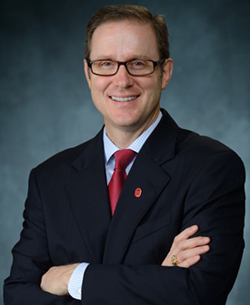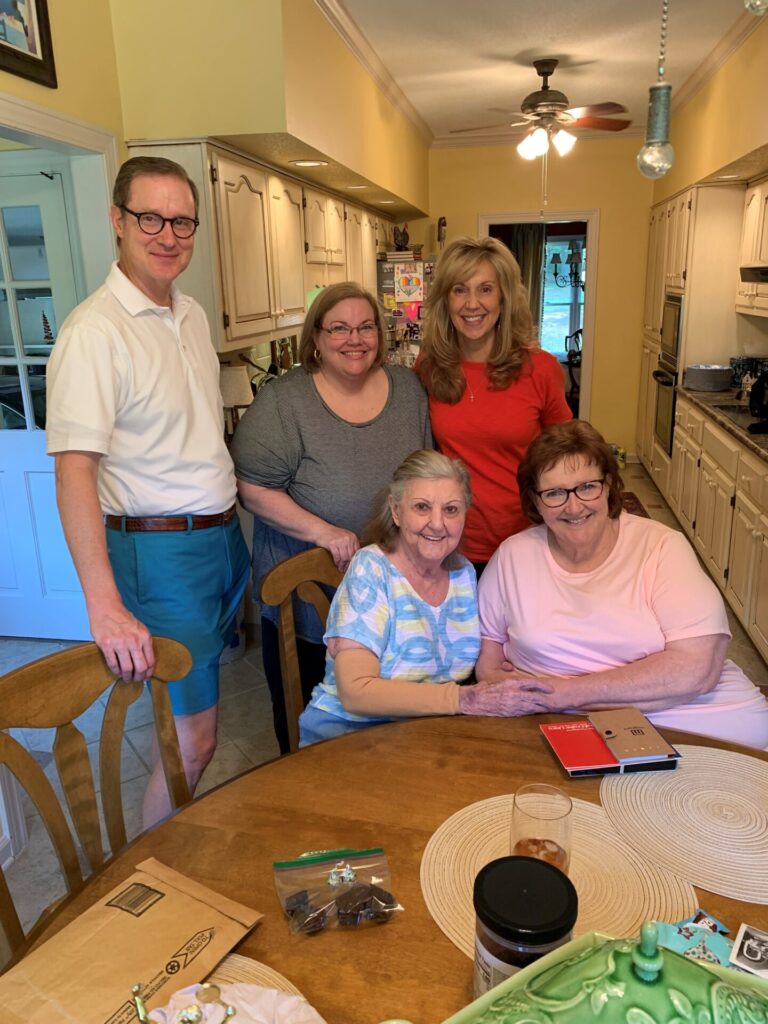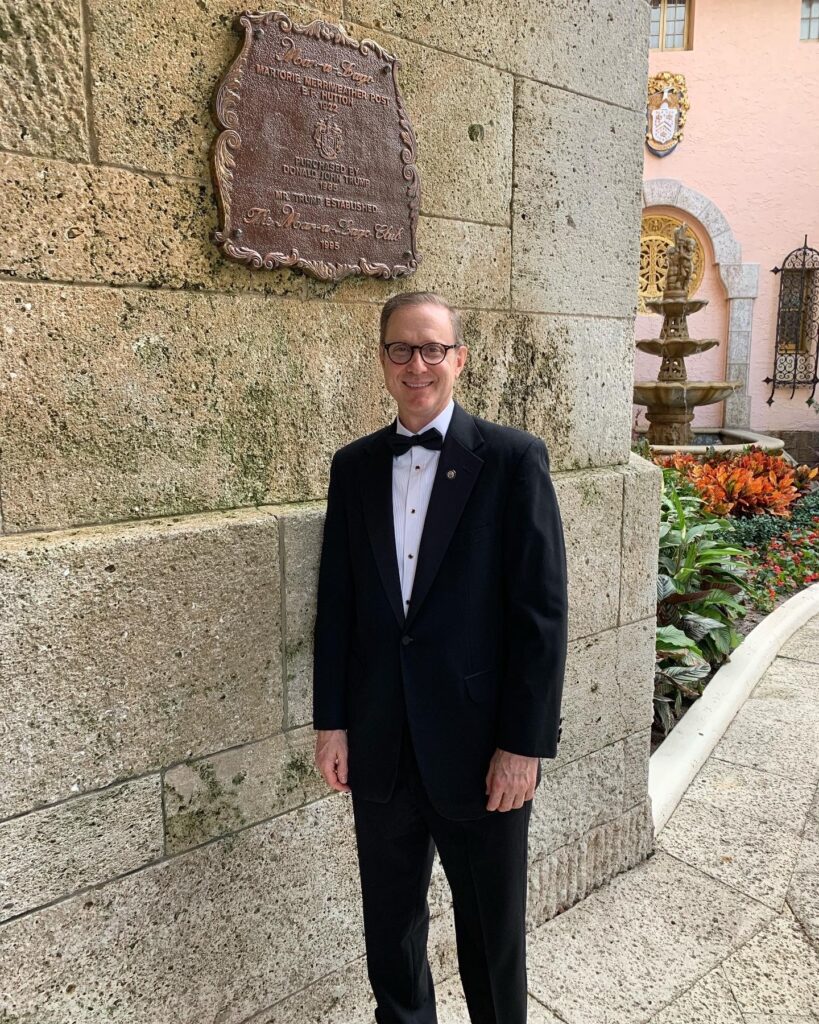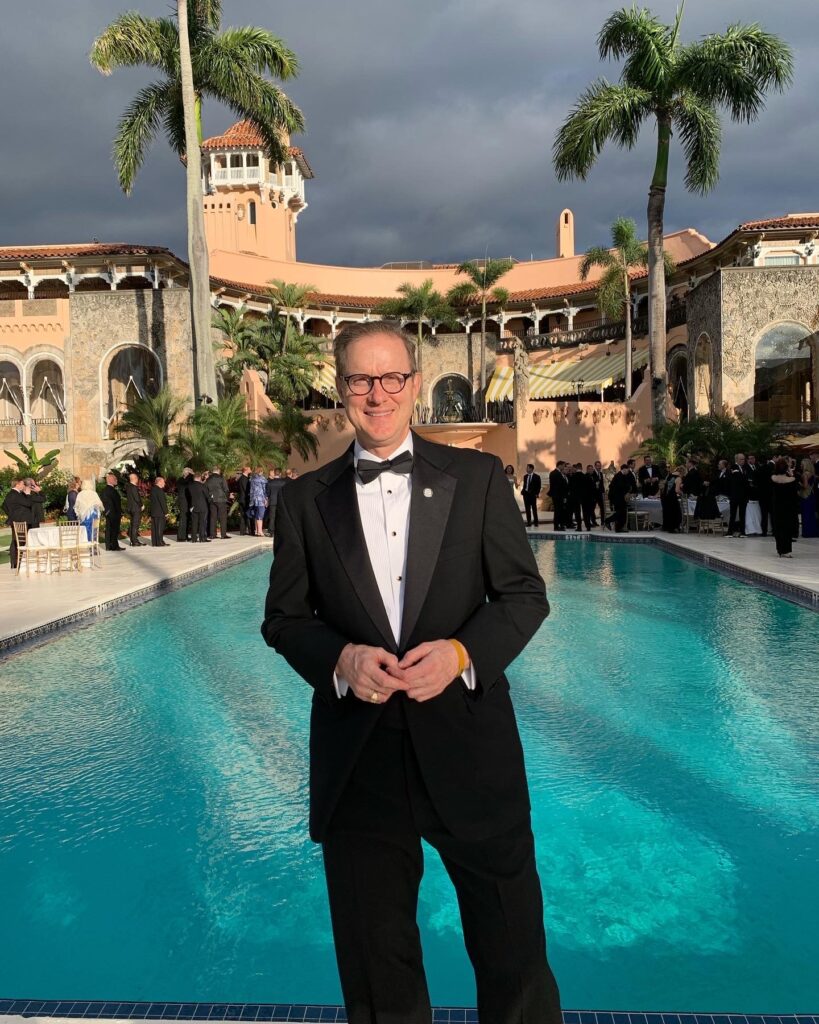Bonnie Brown
Bonnie Brown: Q&A with Tim Walsh

The latest interview in the Ole Miss Retirees features Tim Walsh. The organization’s mission is to enable the university’s faculty and staff retirees to maintain and promote a close association with the university. It is the goal of the Ole Miss Faculty/Staff Retirees Association to maintain communication by providing opportunities to attend and participate in events and presentations.

Everyone knows Tim Walsh. He is the gentleman who often was the face of Ole Miss as he went about the business of alumni relations. He is a Memphis native but has deep roots in Oxford. He is no doubt an Ole Miss Rebels fan and had many mentors he credits for his successful career.
Brown: You are a Memphis native. What is a special memory of that community?
Walsh: I loved growing up in Memphis, and like a lot of people, thought I had an idyllic childhood. We lived in east Memphis, right off Walnut Grove Road, and my life was centered around that part of town: schools, church, recreation/sports, and social activities were all a short drive from home. I was one of five children (three girls and two boys).
Brown: Please talk about your childhood. What is your earliest memory?
Walsh: My earliest, vivid memory is of going to kindergarten. I don’t believe that was the norm in 1966 in Memphis. Our Catholic schools didn’t yet offer it, so my parents sent me to some other church that offered it. I was the fourth child in our family, but the first to attend kindergarten.
Brown: Please tell us about your parents, any siblings, and family life.
Walsh: My father, Joe, was a lifelong Memphian, and a cradle Catholic. He attended Immaculate Conception grade school and Christian Brothers High School. My mother, Judy, (nee Kidd) is a Pontotoc County native (from the Hurricane/Buchanan area). After she graduated from Thaxton High School she moved to Memphis to get a job. A mutual friend introduced them. Catholic schools and church were a central part of our life. My sisters went to St. Agnes (all girls) and I went to grade school at St. Dominic School for Boys and then Christian Brothers High School (CBHS), all boys.
My older brother was riding his bicycle home from baseball practice in the third grade and was run over by a car and killed. I was four years old, and I still have the bedroom furniture that we shared back in 1965.
My life centered around our schools and tennis. My father was an excellent athlete, and he took up tennis when I was no taller than a racket. He would let me tag along to watch him play, and so I naturally started playing. I played in my first tournament when I was seven. All through my childhood I played in every tournament in Memphis and traveled to several other cities and states to compete in tournaments.
All three of my sisters live in the Memphis area. Beverly is the oldest and lives in Germantown. She is the Senior Director, Controllership and Assistant Treasurer at Juice Plus, and has worked there since 1989. Teresa lives in Arlington and is a retired Memphis public school teacher. Younger sibling Angela, who also attended Ole Miss, lives in Memphis, where she is a Client Executive in the Financial and Retirement Services field with Transamerica. She has been helping people plan for their successful retirement for 33 years.

Brown: Where did you go to school?
Walsh: My grade school was St. Dominic School for Boys. It is off Walnut Grove Road and shares a campus with St. Agnes Academy, the all-girls K-12 school that my sisters attended.
In high school, I attended Christian Brothers High School (CBHS), an all-boys school of about 800 during my years. I am particularly proud to have attended CBHS. It is a legacy of the generational school. Over 20 of my relatives are CBHS graduates. I currently serve on its Alumni Association Board of Directors.
Brown: What were you really into when you were a kid?
Walsh: I played tennis all day, every day. My mother took me to either the Racquet Club of Memphis or Chickasaw Country Club every day after breakfast and picked me up right before supper. I would play with anyone I could find. On the day I was home, I would play with neighborhood boys, and there was always yard work to do.
Brown: What world events were significant to you growing up?
Walsh: Even though I was only seven, I do remember one day my mother came outside and told me I had to stop playing and come inside. That was the day Martin Luther King Jr. had been assassinated in Memphis, and the mayor issued a curfew. Of course, I didn’t grasp what had happened, but I do recall that one aspect of that awful day.
I also remember another time in grade school when all students went to the cafeteria and gathered around the one television in the school to watch astronauts land on the moon. It was very unusual to get out of class in those days, so that was easy to remember.
Brown: What was your very first job, perhaps as a teen? What were your responsibilities and what was your pay?
Walsh: My first job was in grade school. My father owned a retail auto parts store, and I went to work with him most Saturdays and every day in the summer. As I got a little older, our deal was that whenever I had a tennis match scheduled, I could skip work. That was great motivation to play all the tennis I could! I worked for my father all through college. He conveniently scheduled his annual inventory during Ole Miss spring break, so that’s how I spent my four spring breaks during college.
Brown: Talk about your high school experience.
Walsh: I loved my high school experience after I got over the first day. My sisters, and some others, had managed to haze me some during the summer before I started high school, by telling me stories about how mean and tough the Christian Brothers were at the high school. I awoke on my first day nauseous and scared, but in our family, if there wasn’t any blood, you went to school! I ended up loving it, and still see some teachers that I had in high school. I’m looking forward to my great-nephews going there in a few years.
Brown: What was college life like for you?
Walsh: Ole Miss was a great experience, too. My uncle, the late John Kidd, worked in the Accounting Office at Ole Miss for 25 years, so between that and my mother being from Mississippi, and her whole family being Rebels, I was kind of steered to attend Ole Miss. I pledged Phi Kappa Psi Fraternity and am still involved with my chapter today. I lived in Twin Towers (now Stockard-Martin) for three semesters before moving into the Phi Psi house for two years. I received a Bachelor of Public Administration degree and had some great professors and advisors. Don Vaughan was my advisor and became a good friend. He had known my father through some tennis tournaments, and he and I played quite regularly as well. The best professor I had in my life was John Winkle, and I have told him that before. Other outstanding professors I had were Max Williams, John MacArthur, Vaughn Grisham, Frank Moak and Phil Cooker. I also became friends with Jimmy Davis. Some of these men are still around, and I wish every university had a campus full of faculty like these.

Brown: Talk about positions/jobs you held on your path to Ole Miss.
Walsh: After working for my father full-time for one year after graduating, I entered graduate school, pursuing my M.Ed. in Higher Education (received in 1991). Fortunately, Sparky Reardon had a graduate assistant position, which covered my graduate tuition.
Brown: Tell us how/when your Ole Miss “story” began? Who hired you? What was the interview process like? How long did you work at Ole Miss?
Walsh: When I was in graduate school, I heard that Jim Butler was retiring as Director of Alumni Affairs. All during my undergraduate years I was in the Student Alumni Council and ended up being Vice President my Senior year. Because of those relationships, I knew several staff members. I called Herb Dewees, who was the associate director, and told him I hoped he got Mr. Butler’s position and that I wanted to work for him. He invited me to lunch, and we discussed the job. I applied, got it, and began working on July 5, 1990. I interviewed in the Griffin Boardroom of the Alumni House with Herb, Brenda West, and Clay Cavett. I retired 25 years later on February 28, 2015.
Brown: What were some of your responsibilities?
Walsh: My first job as Alumni Assistant was to work with our alumni clubs throughout the country. It is a great first job in alumni relations because I met so many key volunteers from throughout the country who worked in every field. After less than a year, I was promoted to Assistant Director. My main responsibilities were to direct the alumni relations and fundraising for the Schools of Law and Engineering. Those were great years, especially working with our law alumni. Trent Lott, Robert Khayat and Herb Dewees all preceded me as Law Alumni Secretary. Then I was promoted to Associate Director, and finally Executive Director. I led the campaign to raise funds to build the tower addition to the Alumni House, which was renamed The Inn at Ole Miss. That was an exceptionally rewarding project and afforded me the opportunity to work with more volunteers and meet many alumni I had not met before. After a flood in the Alumni offices, we also raised money to renovate and expand the office space in the now-Triplett Alumni Center. Talk about turning lemons into lemonade!
Brown: What did you know about Ole Miss before you accepted a position here?
Walsh: Well, I knew a good bit from having attended, and having volunteered with the Alumni Association. I have told many people over the years that I am the classic example of “it’s not what you know but who you know.” Had I not volunteered as an undergraduate, the alumni staff would not have known me, nor would I have probably known about that job opening. But there is always lots to learn once you are a member of the staff.
Brown: When you left Ole Miss, you started a second career at the University of Florida and later at the University of Kentucky. Tell us about those experiences.
Walsh: The folks at UF had been talking to me for 18 months before they offered me the position. I was asked to go down there and assess their alumni engagement program. Clearly, it was a look/see, and after I submitted my report, we kept in touch over the ensuing months. UF is very corporate and everything is twice as large as Ole Miss. I did like it there, and the alumni were quite kind and welcoming. I still have some good friends in Gainesville and stay in touch with them regularly. I was there 2 ½ years before UK approached me about going there to replace their long-time alumni director. I was there for a little over two years, and at both places implemented some changes that I was asked to do.
Brown: You found yourself working at the Mississippi Federal Credit Union after your retirement and return to Oxford. Talk about your role there.
Walsh: I wanted to get back to Oxford to be near family and longtime good friends, but after trying retirement for a week, I knew it wasn’t for me. I’m much happier in a routine and when I’m doing something. The Credit Union needed some help with marketing efforts in Oxford and North Mississippi, and they created this position for me. I am the Director of Community Relations, and I help with marketing and membership. I will never consider myself a banker, but I have sure learned a lot about financial institutions and banking. I’m enjoying it.
Brown: What skill would you like to master?
Walsh: Playing chess. I got pickleball rackets and balls for Christmas, so I need to master that.
Brown: What were some of the turning points in your life?
Walsh: Taking that first job at Ole Miss changed my life. My father told me to turn it down because the pay was so low. He wanted me to get my Ph.D., but I’m glad I didn’t take his advice at that time. I was truly blessed with a great career in a field I loved.


Brown: As part of your jobs, you have traveled quite a lot. What’s the best trip/destination you’ve ever taken, and why was it the best?
Walsh: I’ve been asked this question many times, and my answer has always been, “the last trip I took.” I do love to travel, both domestically and internationally. I’ve been to almost 40 countries, and the only one I don’t want to revisit is French Polynesia. I’ve been twice, and that was once too many. Give me mountains, castles, and cathedrals instead of a beach.
The worst part of COVID for me has been the travel restrictions. I’ve had one trip to Europe postponed for two years, but am hoping to finally go this August. Fingers crossed.

Brown: What life skills are rarely taught but extremely useful?
Walsh: Grammar. I cringe at many things I read and hear these days.
Brown: What makes you roll your eyes every time you see/hear it?
Walsh: The word, “incredible.” The next time you are watching a sporting event on television, count the number of times the announcers use the word, “incredible.” It’s the most overused word in America today, and it makes me roll my eyes.
Brown: Tell us what makes you smile.
Walsh: Being with my family and longtime friends. They make me happy. And seeing the Rebels win in any sport.

Brown: What habit do you have now that you wish you started much earlier?
Walsh: Saying “I love you” to more people without worrying about their reaction.
Brown: Do you have a favorite quote? What is it?
Walsh: I don’t know where I first heard or read this, but it’s, “I’m easily satisfied with the very best.”
Brown: Do you have any hobbies?
Walsh: I go to the gym most days after work. I love to cook and spend lots of my time doing that.
Brown: What remains on your bucket list?
Walsh: I’m a lifelong tennis player and enthusiast, but still haven’t attended any of the major tennis tournaments, so I want to attend all four of those: Australian Open, French Open, Wimbledon, and the US Open.
Brown: Amidst some of the reflection and introspection that comes with this unique time in history, many find themselves thinking about the legacy that they will leave. A legacy means different things to different people. What do you want your legacy to be?
Walsh: I promise I have never thought about my legacy. I just hope I succeeded in my career in Alumni Relations at Ole Miss, by helping our alumni and friends become more committed in their support of our state’s flagship institution.
Bonnie Brown is a retired staff member of the University of Mississippi. She most recently served as Mentoring Coordinator for the Ole Miss Women’s Council for Philanthropy. For questions or comments, email her at bbrown@olemiss.edu.









































